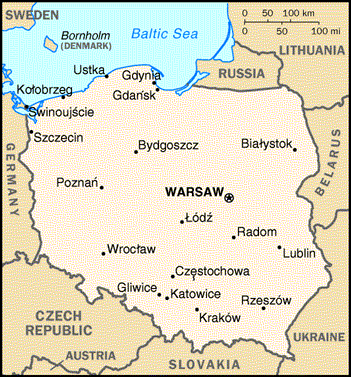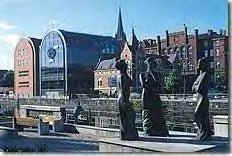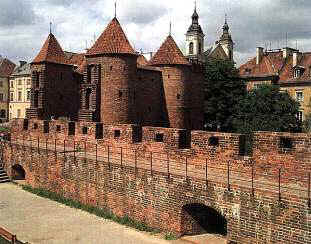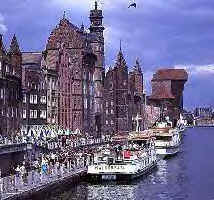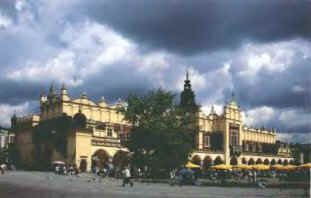|
Map of Poland
Click on different cities and you will be taken to a different part of the web. |
|
| Information about Poland | |
| Country's full name: The Republic of Poland | |
|
Country's flag: Color: top -
white, bottom - red |
|
|
National emblem:
White eagle in a crown against a red
background
|
|
| National anthem: " Dombrowski's Mazurka" | |
| Language: Polish - Learn some important polish phrases | |
| Population: 38, 6 mln | |
|
Capital: Warsaw
My Home Town - Bydgoszcz |
|
|
|
